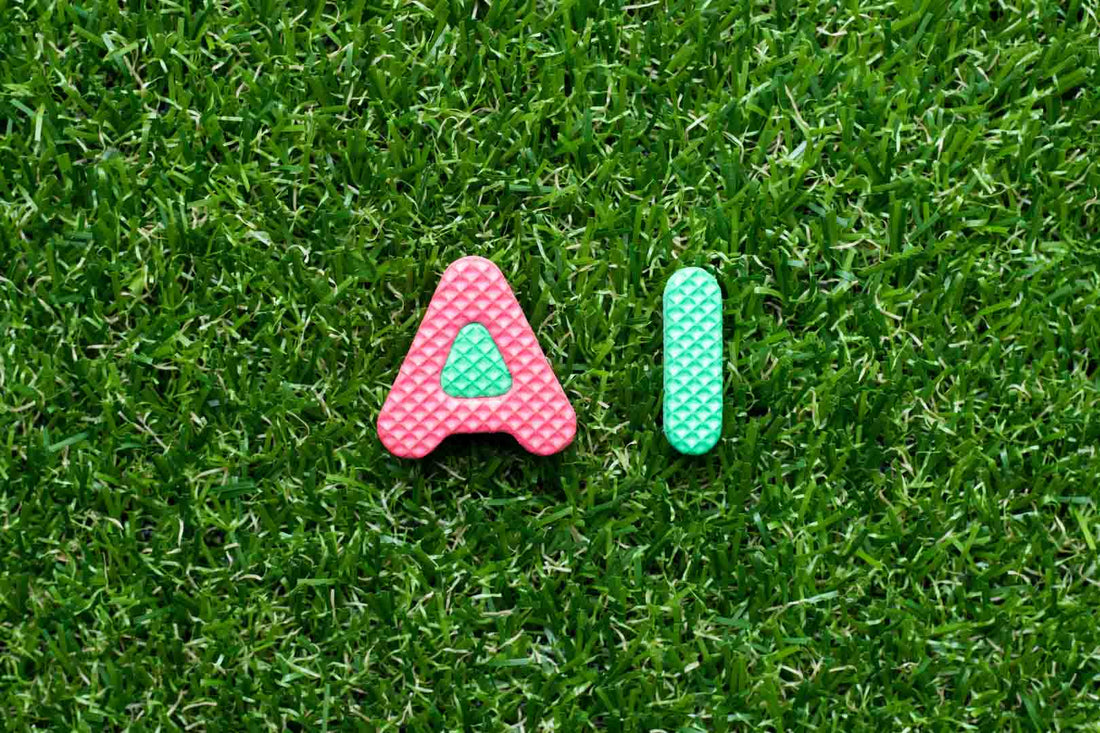In a world that is rapidly evolving, Artificial Intelligence (AI) plays a crucial role in the well-being of humanity and the preservation of our planet. This innovative technology, if used correctly, can not only improve our quality of life but also promote sustainable practices, creating a better future for all.
What is artificial intelligence?
Artificial intelligence, or AI for short, represents the brilliance of human thought captured in bits and bytes. It is the ability of machines to understand information, learn and draw logical conclusions. Similar to a blank page waiting to be filled with ideas, AI is a framework fuelled by data and algorithms. These algorithms allow computers to recognise patterns, make decisions and improve based on experience. It is like a neural network that is built inspired by the human brain structure, but can think and learn much faster. AI is the driving force behind 21st century innovations, from self-driving cars to personalised recommendations on streaming platforms. It has the potential to profoundly change the way we live, work and interact.
Artificial intelligence: a tool for personal well-being
AI is more than just technology; it is a powerful tool for personal well-being. In a world where time is a precious commodity and the demands of everyday life can often be overwhelming, it offers a way out. This smart technology can make our daily lives easier by taking over repetitive tasks, setting reminders, optimising routines and even providing emotional support. Through personalised health and fitness apps, AI can help us lead healthy lifestyles by tracking our activities, making dietary recommendations and motivating us to exercise more. AI is also on the rise in areas such as mental health. Chatbots and AI-powered therapy platforms provide a space for sharing thoughts and feelings even when human interaction is not possible. However, while AI undoubtedly offers us numerous benefits to our personal well-being, it is important to maintain a balanced approach and understand that human connections and healthy habits are still irreplaceable. AI should be seen as a tool to help us live fulfilling and healthy lives, not as a replacement for the fundamental aspects of our humanity.
Sustainable development through AI
Sustainable development using artificial intelligence is a promising and much needed paradigm for our times. AI can serve as a key tool to address the global challenges facing our environment and society. Through advanced algorithms and data analysis, AI can help achieve more efficient resource use, optimise renewable energy and combat climate change. It enables the development of smart cities where energy, water and waste management can be improved, contributing to sustainable urban development. AI-powered systems can revolutionise agriculture by providing accurate crop cycles and optimised irrigation systems to minimise food shortages and preserve farmland. But in addition to environmental applications, AI also offers the opportunity to reduce social inequalities. It can help make education, healthcare and economic opportunities more accessible. Nevertheless, it is crucial to emphasise that the integration of AI into sustainable development goals must be carefully monitored to ensure that it does not lead to further social injustices or environmental problems. A balanced approach that emphasises ethics, transparency and broad participation is crucial to realising the full potential of AI for a sustainable future.
Properly deployed AI: a tool to achieve the Sustainable Development Goals (SDGs)
Properly deployed artificial intelligence undoubtedly represents a powerful tool for achieving the United Nations' global Sustainable Development Goals (SDGs). The 17 goals, commonly known as the 2030 Agenda for Sustainable Development, encompass a wide range of challenges, including poverty, hunger, health, education, gender equality, clean water, affordable and clean energy, climate action and more. AI can bring about transformative change in all of these areas. In healthcare, it can improve the diagnosis and treatment of diseases, enable personalised medicine and accelerate research and development. In environmental protection, AI can help monitor pollution, combat climate change and support biodiversity conservation. Education systems can be individualised and made more effective by AI, optimising the learning process and improving educational opportunities for all. Conscious integration of AI, based on the principles of sustainability, can help us create a more sustainable world for future generations by providing us with the necessary insights, tools and innovations. It is up to us to use this technology responsibly and in the service of all humanity.
Man and machine: a symbiosis for a better world
Successfully integrating AI into our everyday lives requires humans and machines to work in partnership. The conscious use of AI to enhance well-being and promote sustainable practices is crucial. Education and awareness about the potentials and limitations of AI are essential.
Ethics and transparency in AI
The ethical development and use of AI technologies are imperative. Ethics and transparency are fundamental aspects in the development and use of artificial intelligence. Given the rapid advances in this field, it is crucial that we carefully reflect on and address the ethical implications of AI systems. Ethics in AI refers to principles and guidelines to ensure that AI acts in accordance with the values of the common good and humanity. Justice, responsibility, privacy, fairness, transparency and accountability are central to this. It is essential that AI algorithms and systems are developed and controlled in a way that does not have a discriminatory or harmful impact on certain groups or individuals. Transparency in AI refers to the disclosure of the functioning, data use, decision-making processes and intentions of AI systems. Clear transparency builds trust with users and enables them to understand the technology and better assess its impact. Creating clear guidelines based on ethical principles is crucial to ensure that AI is used for the common good and promotes human progress without causing negative consequences.
Towards a harmonious future
Artificial intelligence has the potential to be a powerful tool for promoting well-being and sustainability. The right use of AI, underpinned by ethics and transparency, can pave the way to a future where people and technology go hand in hand to create a better world for all. It is up to us to use this technology wisely to create a symbiosis that promotes both our personal well-being and the health of our planet.










